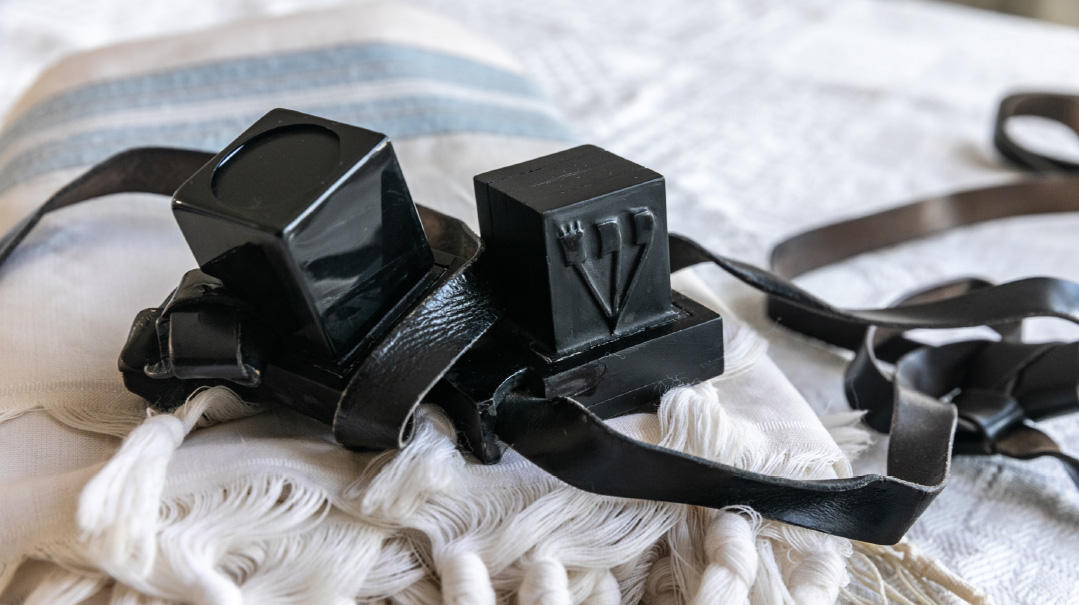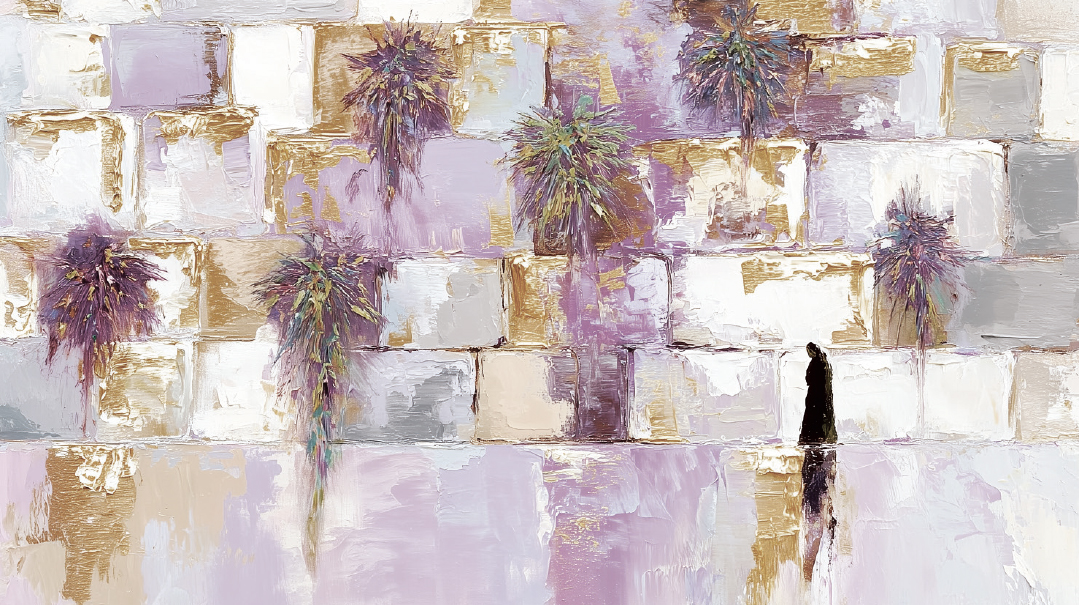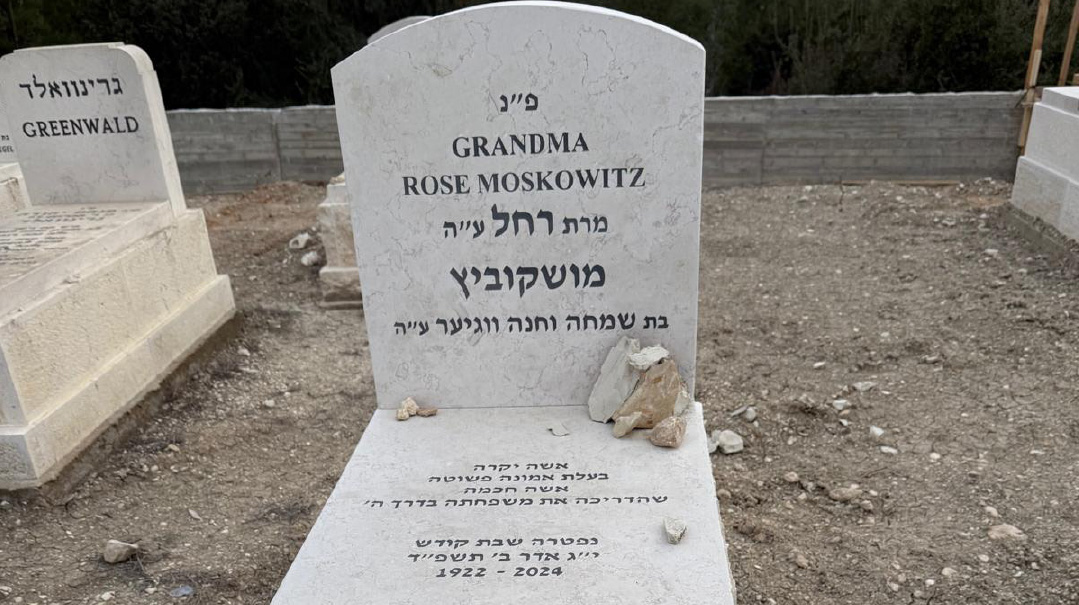Tour Bus from Heaven

"We’re part of the Chevra Kaddisha of Tzfat, and we’ve been waiting here an hour to find a minyan to bury an old lady"

As told to Barbara Bensoussan by Yehuda Azoulay
The average trip to a soda machine results in the machine spitting out a can of cola. But in my case, my most recent trip to a soda machine produced no can. Instead, it produced a very “uncanny” opportunity to do a mitzvah.
I was in Tzfat with a group of 45 Moroccan Jewish businessmen from Toronto on the first day of what was billed as the Sephardic Unity Israel Trip. We’d toured all around Tzfat, and now everyone had gathered back on the bus near the new cemetery of Tzfat for the next leg of the trip, a visit to a winery. We were waiting for three of the trip’s rabbis, who had gone to immerse in the mikveh of the Arizal. We were originally scheduled to leave at noon, and now it was almost one, with no sign of the rabbis.
It was scorching hot, and I was dying for something to drink, so I decided to run up the road to where I’d seen a soda machine near a small building. It was up a hill, and I arrived there, panting.
Two middle-aged Sephardic-looking women were standing next to the machine. “B’vakashah,” I said, “would you have change for the soda machine?”
“I have no change, and anyway the machine is broken,” one woman answered in a thick Moroccan accent. She looked dejected. “Would you maybe know where we could find ten men for a minyan?” she asked. “We’re part of the Chevra Kaddisha of Tzfat, and we’ve been waiting here an hour to find a minyan to bury an old lady. She’s a Holocaust survivor, and we were supposed to bury her ten minutes ago. The rabbi is getting impatient!”
The cemetery was deserted, although an hour earlier it had burgeoned with literally hundreds of people, groups of girls and Bnei Akiva boys on trips to kivrei tzaddikim. The woman explained that the nifteres had no family present except one grandson, who was sitting in the chapel waiting to see if a minyan could be found.
What were the odds I should run into her, from a bus containing 50 men? “I have a busload down the hill, but we’re way behind schedule,” I said. “Let me go see what I can do.”
I ran back down the hill and told the trip organizers, Victor Arrobas and Rabbi Leib Irons, about the situation. “Look, the rabbis are coming back any minute,” Victor said. “It’s 12:55, we really need to leave in five minutes. But you know how Israelis are — five minutes could be an hour. But first make sure there’s really a body there!”
I agreed and ran at breakneck speed back up the hill, pulled by the obvious need of the Chevra Kaddisha yet feeling equally pressured by the tour’s time constraints. But something inside me was determined to make this happen.
I reached the women and asked, “Where’s the body?”
“Bifnim, inside,” one of them responded.
I ran into the building, but the room was empty. Coming back out, I told the ladies, “There’s no one there!”
“Further in,” they said.
I went from the first room into a second one, then a third. No body. Finally, in the fourth room, I saw it: a small form wrapped in tachrichim. My heart stopped. Something about the sight moved me deeply, and I resolved to give this woman the burial she deserved, no matter what. When I ran back out, one of the women exclaimed, “You’re white like a ghost! No — more like a malach!”
“I feel like malachim were watching,” I said, shaking. “Wait here, don’t start without me. I’m going to get you your minyan!”
I raced back to the bus. The driver had already started the engine. I grabbed Rabbi Irons by the arm. “Did the rabbis come back yet from the mikveh?” I asked.
“Not yet.”
“Perfect,” I declared. “We’re going to help bury this lady who has no one to say Kaddish for her.”
I clambered onto the bus, not even bothering to pick up the mic. “Listen up, everyone,” I shouted, and 50 startled faces turned toward me. “I was just up the hill, about two minutes away, and there’s a lady waiting for burial. She has no minyan for Kaddish. I need you guys to help, now!”
Giving a person a proper Jewish burial is so important, it takes precedence over any other mitzvas aseh. Every man on that tour, sensing the urgency, rose, and like a wave, they poured out of the bus, following me up the hill. The women saw a crowd of Jewish men running toward them, and they dissolved into tears of joy.
As we filed into the chapel, it seemed clear all this could only have been orchestrated from Above. Immediately the body was brought out of the room, with nearly 50 men and several rabbis now present. It was a short levayah: The rabbi said a few words, and the grandson spoke briefly. His grandmother was 95 years old, he said, a survivor of the Shoah. She had passed away on the same date as her birthday, hinting at her special spiritual status.
We recited various tefillos and Kaddish, and then we escorted the body out of the chapel. The burial site was literally a one-minute walk away. Once she was buried, we recited Kaddish again, exhilarated that we’d been zocheh to participate in such an exalted mitzvah and provide this woman with a respectable Jewish burial. According to a passage in the Zohar, a person who is buried like this, amid simchah, goes straight to Gan Eden.
When the levayah was over, we exchanged a few words with the grandson. “My sister and I are her only remaining family,” he said. “She isn’t here because she lives far away in Toronto.”
We stopped short in surprise. Toronto? Our whole group was from Toronto. Where did she live? “Her husband is the rabbi of a Chabad shul, the Romano shul,” he said.
Of course we’d heard of the Chabad Romano shul, as have most Jewish Torontonians. One of the men in the group, who knew the rabbi, immediately called him and told him what had just happened. He was extremely moved, and quoted what he’d read just that day from the Lubavitcher Rebbe’s Hayom Yom: “One should learn about Divine Providence and there is no coincidence… each particular movement of every human being is directly related to the overall intent underlying the creation.”
Rabbi Irons turned to me and said, “Your mission in Eretz Yisrael is complete! Even if you go home today, you did your job.”
“Thank you,” I answered. “But as long as we’re in This World, we’re never done.”
May the merit of Ida bat Chunya a”h be a source of blessing to us all.
(Originally featured in Mishpacha, Issue 753)
Oops! We could not locate your form.






